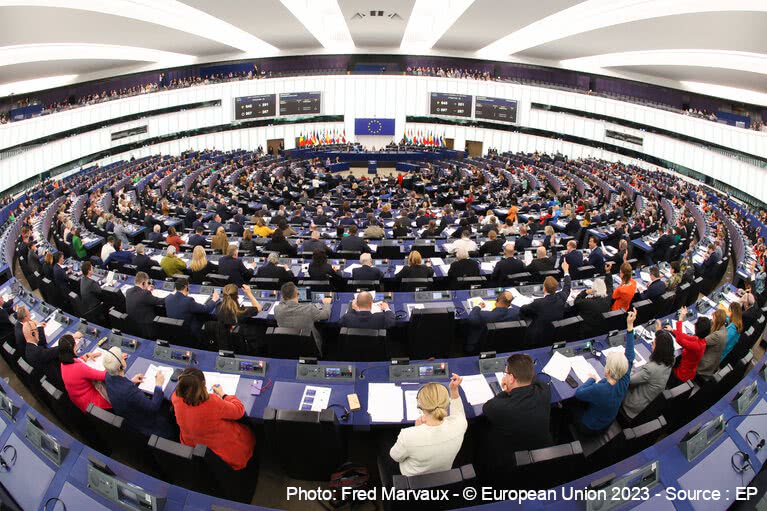
The European Parliament today gave its final approval to five new laws, the result of agreements reached with EU countries at the end of 2022, which are part of the "Ready for the 55% by 2030", the EU's strategy to reduce greenhouse gas emissions of at least 55% by 2030 compared to 1990 levels, as provided for in the European Act on climate. The texts will now also have to be formally approved by the Council and will then be published in the "Journal Official" of the EU to enter into force after 20 days.
The reform of the Emissions Trading System (ETS) is was adopted by 413 votes to 167, and 57 Abstentions. In this context, Parliament also adopted the inclusion of greenhouse gas emissions in the ETS from the maritime sector (500 votes in favour, 131 against and 11 abstentions), and the revision of the allowance trading scheme Aviation emissions (463 votes for, 117 against) and 64 abstentions).
Welcoming today's formal approval of the new law on the EU ETS, the association of European shipowners ECSA pointed out that the Parliament and the Council of the European Union have heeded calls from the industry for the proceeds to of the EU ETS return to the maritime sector to support the adoption of clean fuels and promoting innovation. At least 20 million ETS allowances, corresponding to around two billion euro based on the current price of the ETS carbon - it specified the European Community Shipowners' Associations - will be awarded to maritime projects under the Fund for innovation.
 "Tackling the climate crisis and decarbonise maritime transport - underlined the ECSA Secretary General, Sotiris Raptis - is not a A question of "if" but a question of "how". Allocate part of the ETS revenues to the maritime sector is A victory for the energy transition of the sector. The specific support through the Innovation Fund really represents The key to closing the fuel price gap clean'.
"Tackling the climate crisis and decarbonise maritime transport - underlined the ECSA Secretary General, Sotiris Raptis - is not a A question of "if" but a question of "how". Allocate part of the ETS revenues to the maritime sector is A victory for the energy transition of the sector. The specific support through the Innovation Fund really represents The key to closing the fuel price gap clean'.
In addition, ECSA expressed satisfaction with the respect of the "Polluter pays" principle through requirements mandatory for the transfer of EU ETS costs to commercial operators of ships. According to the association of European shipowners, also the phasing-in period and the gradual inclusion of emissions from transport Maritime over a three-year period are essential to ensure a smooth transition for the sector and - ECSA has specified - to This is in addition to the special provisions agreed by the co-legislators for ICE Class vessels, small islands and outermost regions.
However, ECSA stressed the need for Decarbonisation of the maritime sector, one of the top priorities of the Net Zero Industry Act, Parliament's proposal for a regulation and the Council which will introduce measures to strengthen The European ecosystem for the production of zero-tech products emissions, will have to be to make available sufficient quantities of low- and zero-emission fuels of carbon at an affordable price to ensure competitiveness global shipping. 'Since maritime transport is the cornerstone of energy security and energy security in Europe supply chain security - noted Raptis - This must be adequately reflected in the priorities strategic of the new Net Zero Industry Act. For this reason We welcome the inclusion of renewable technologies Offshore and Carbon Capture and Storage on the list of net-zero strategic technologies. Moreover - it has specified Raptis - renewable fuels of non-biological origin (RFNBO) should be included in the law, so that the relevant production capacity can be rapidly developed'.